Free Materials
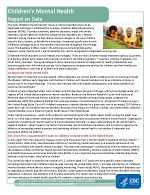
The term childhood mental disorder means all mental disorders that can be diagnosed and begin in childhood (for example, attention-deficit/hyperactivity disorder (ADHD), Tourette Syndrome, behavior disorders, mood and anxiety disorders, autism spectrum disorders, substance use disorders, etc.).
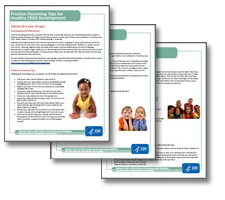
Positive Parenting Tips
Information about developmental milestones and tips for things that parents can do to help their children during each stage
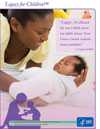
This document describes the Legacy for ChildrenTM (Legacy) program and a CDC partnership with the Administration for Children and Families to bring Legacy to the Early Head Start program. You can read about what it takes for a local community to implement Legacy.
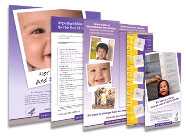
“Learn the Signs. Act Early” Program
CDC’s “Learn the Signs. Act Early.” program aims to improve early identification of children with autism and other developmental disabilities so children and families can get the services and support they need.CDC has fact sheets, milestone checklists and products, brochures, and more in English, Spanish, simplified Chinese, Korean, and Vietnamese.
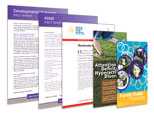
Attention-Deficit / Hyperactivity Disorder (ADHD)
People with ADHD have trouble paying attention, controlling impulsive behaviors, and in some cases, are overly active. CDC has materials for families.
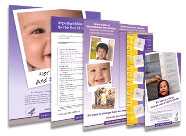
Autism Spectrum Disorders (ASDs)
ASDs are a group of developmental disabilities that can cause significant social, communication and behavioral challenges. CDC has fact sheets, posters, a growth chart, and more in English and Spanish.
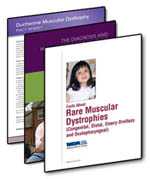
Muscular Dystrophy
Muscular dystrophies are a group of disorders that result in muscle weakness and a decrease in muscle mass over time. CDC has information in English and Spanish on muscular dystrophies for families, health professionals, and teachers
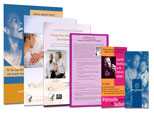
Fetal Alcohol Spectrum Disorders (FASDs)
FASDs are a group of conditions that can include physical problems and problems with behavior and learning. CDC has materials in English and Spanish for families, health professionals, and others on FASDs.
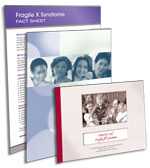
Fragile X syndrome (FXS)
Fragile X syndrome (FXS) is the most common known cause of inherited intellectual disability. CDC has materials in English and Spanish for families and researchers
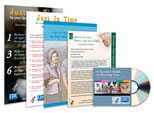
Hearing Loss in Children
A hearing loss can happen when any part of the ear is not working in the usual way. CDC has brochures, fact sheets, and other educational materials in English and Spanish for families and health professionals.

Hemophilia
Hemophilia is an inherited bleeding disorder in which the blood does not clot properly. CDC has brochures, fact sheets, tips, and guides for families and health professionals.
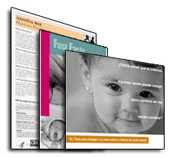
Jaundice
Jaundice is the yellow color seen in the skin of many newborns. When severe jaundice goes untreated for too long, it can cause a condition called kernicterus.CDC has materials for families in English and Spanish
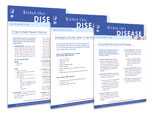
Sickle Cell Disease
Sickle cell disease (SCD) is a group of inherited red blood cell disorders. CDC has tip sheets for people living with sickle cell disease.
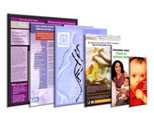
Spina Bifida
Spina bifida is a major birth defect of a person’s spine. CDC has brochures, fact sheets, and other educational materials in English and Spanish.

Tourette Syndrome
Tourette Syndrome causes people to have “tics”. Tics are sudden twitches, movements, or sounds that people do repeatedly. CDC has brochures, fact sheets, and other educational materials.
- Page last reviewed: September 6, 2017
- Page last updated: September 6, 2017
- Content source:
- Division of Human Development and Disabilities, National Center on Birth Defects and Developmental Disabilities, Centers for Disease Control and Prevention


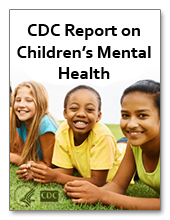
 ShareCompartir
ShareCompartir